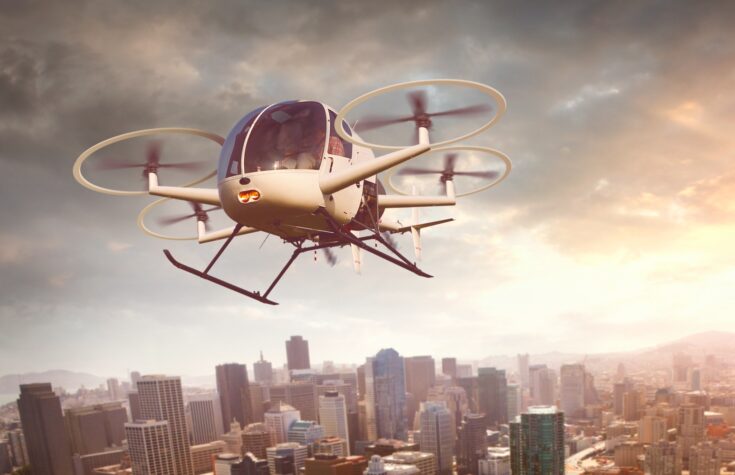A new report from the UK Research and Innovation (UKRI) and PwC assesses potential benefits to the UK economy from the use of drones and electric aircraft. Analysis in the Future Flight Challenge Socio-economic study found that switching to these new technologies could:
- be up to 48% cheaper
- deliver faster journey times
- improve worker safety when compared to current methods.
To support the widespread and safe use of new aviation technologies, UKRI’s Future Flight Challenge wanted to understand the potential costs and benefits of different applications.
Six use cases
The Future Flight Challenge asked PwC to undertake a socio-economic study that could be used to assess six different use cases which represent potentially valuable applications of new aviation technologies:
- using a drone to inspect a 220km powerline in Scotland, which at one point runs more than 2,500ft above sea level, rather than sending a two-person team
- delivering mail from Inverness to Kirkwall in Scotland by cargo drone instead of using a normal cargo plane
- using a drone to deliver medicine from a pharmacy direct to patient homes instead of using a car
- using a battery powered sub-regional air taxi instead of the train to travel between York and Preston
- using a battery powered air mobility vehicle to travel 25km in a rural area instead of using a car
- using a battery powered air mobility vehicle instead of a ridesharing service to travel 10km in a major city.
The study found that using drones to inspect powerlines, deliver mail and medicines could be up to 35% cheaper than the current way. Whilst people travelling from York to Preston could significantly benefit from having access to an electric aircraft.
With cheaper fares and travel times potentially halved when compared to completing the journey by train.
The Future Flight Challenge is funded by GBP125 million from the Industrial Strategy Challenge Fund. It aims to revolutionise the way people, goods and services fly. It supports the development of a novel integrated aviation system around freight-carrying drones, urban air vehicles to hybrid-electric regional aircraft. The challenge also develops supporting infrastructure, regulation and control systems required to use these new aircraft practically and safely.
Read the full report: Future Flight Challenge: Socio-economic study
Read a summary of the report: Future Flight Challenge: Socio-economic study – summary
For more information visit:
www.ukri.org




